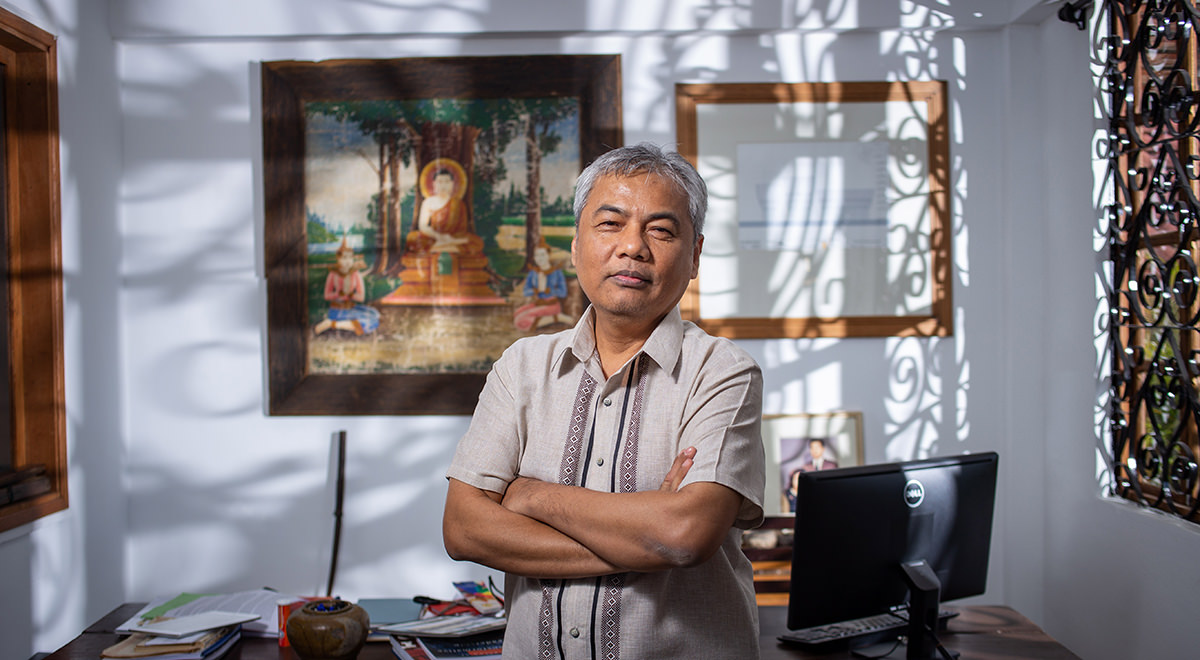During the 1980s, many Cambodians who had been fortunate enough to survive the Khmer Rouge regime and the conflicts that preceded and followed tried to put those terrible years behind them and bring normalcy into their lives.
But not Youk Chhang. Shortly after his arrival in United States in 1986, the young Cambodian joined efforts to expose the regime that had caused the death of an estimated two million people between April 1975 and January 1979. This quest would ultimately bring him back to Cambodia in 1993 to research and build archives for an undertaking that later became the Documentation Center of Cambodia.
“I think its’s out of love [for those who died], out of anger,” Mr. Chhang said in a recent interview. “I got so upset with the Khmer Rouge: that I was so much oppressed, suppressed as an innocent young boy, that I witnessed the killing, that I fought back every minute…and that I lived.
“Every day for me, it’s about human justice,” he said. “I never forget, fighting for this every minute since the Khmer Rouge time.”
As executive director of DC-Cam, Mr. Chhang’s work has included seeking and archiving testimonies from Cambodians who lived through the Khmer Rouge years and locating the mass graves that pepper the country. These tireless efforts recently earned him the accolade often described as Asia’s equivalent to the Nobel prize: the Ramon Magsaysay Award (RMA).

Managed by a foundation supported by the Rockefeller Brothers Fund in New York City, the RMA is named after the Philippines’ President Ramon Magsaysay, whose efforts to end conflict and corruption in his country made him highly popular before his death in a plane crash in 1957.
This year’s award went to six people who, as RMA Foundation President Carmencita Abella said at the award ceremony in Manila on August 31, “are clearly Asia’s heroes of hope, moving their societies forward through their unequivocal pursuit of the larger good.”
Mr. Chhang’s fellow 2018 awardees include India’s Bharat Vatwani, an advocate for India’s mentally-afflicted destitute and Roman Catholic sister Maria de Lourdes Martins Cruz, who has worked to provide education and medical care to East Timor’s poor. Previous Cambodian RMA recipients include Koul Panha, executive director of the Committee for Free and Fair Elections in Cambodia (Comfrel), for his efforts to build a democratic electoral process.
Being awarded the RMA came as a complete surprise to Mr. Chhang. “I had no idea,” he said in an interview. It was only during his visit to Manila to collect the prize that he realized he’d been under consideration for many years. He recalled a visit by two female researchers to the DC-Cam office in 2006. “[T]hey told me they were professors from the Philippines,” he said. “I remembered that they asked me a lot of questions…I had tried to be polite [but it had been] such a long, long, long interview. I had thought ‘Are they writing a PhD or something?’” Actually, it had been for the award.
“I felt very stupid because I thought, ‘I know genocide, I deal with the Khmer Rouge, I pick up skulls [when searching for mass graves]’, but I missed this: such a gentle and smooth investigation by two women from the Philippines”
Read Youk Chhang, Part 2: The Khmer Rouge Nightmare.




